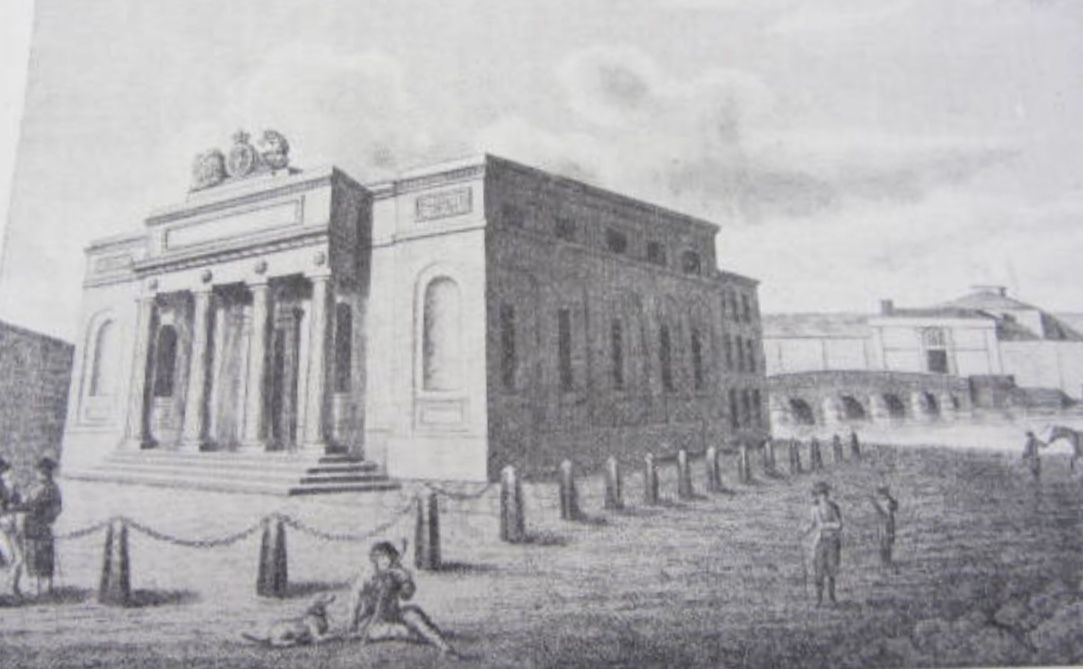Irish Legal Heritage: An engagement originating in avarice

Sketch of Galway Courthouse from James Hardiman’s History of Galway (1820)
In March 1817, Peter Blake brought Mary Wilkins to Court seeking compensation for breaking a promise of marriage.
Mary Wilkins was a wealthy woman in her sixties, whose husband had died over 40 years earlier, leaving her the bulk of his fortune.
Peter Blake, although retired from the Navy, was still under 30 years of age when he met Mrs Wilkins after he “retired to his native country to enter on a new engagement, less honourable, and more disastrous than any in which he had been heretofore involved”. (M McDonnell Bodkin, Famous Irish Trials (1918)).
In Galway Assizes, Blake sought damages of £5,000 “for his blighted feelings” when Mrs Wilkins cancelled their engagement almost as soon as her “promise” had been made.
In Famous Irish Trials, the speech made by Mrs Wilkin’s counsel, Charles Phillips, was said to be so extraordinary that Blake withdrew the action and paid the costs of the proceedings. This “extraordinary” speech was so offensive to both parties that Mrs Wilkins stormed out of Court after the opening passage:
“It has been left to me, to defend my unfortunate old client from the double battery of law and love which, at the age of sixty-five, has been unexpectedly opened upon her. Gentlemen, how vainglorious is the boast of beauty! How misapprehended have been the charms of youth, if years and wrinkles can thus despoil their conquests and depopulate the navy of its progress and beguile the bar of its eloquence! How mistaken were all the amatory poets from Anacreon downwards, who preferred the bloom of the rose and the thrill of the nightingale to the saffron hide and the dulcet treble of sixty-five!”
After successfully convincing the crowd at the Court House that the engagement “originated in avarice” and was “promoted by conspiracy”, Phillips was said to have remained unaware of his client’s outrage until he left the Court and was met by Mrs Wilkins “armed with a horsewhip”:
“A verdict secured by disparagement of her charms had aroused, not her gratitude, but her rage. The blows she rained about his head and shoulders promptly convinced her insulting champion that if age had dimmed the beauty of her face it had spared the vigour of her arm. Taken utterly by surprise, while the applause was converted to laughter, he fled to the sanctuary of the bar-room, pursued to the door by his indignant client”. (M McDonnell Bodkin, Famous Irish Trials (1918)).









